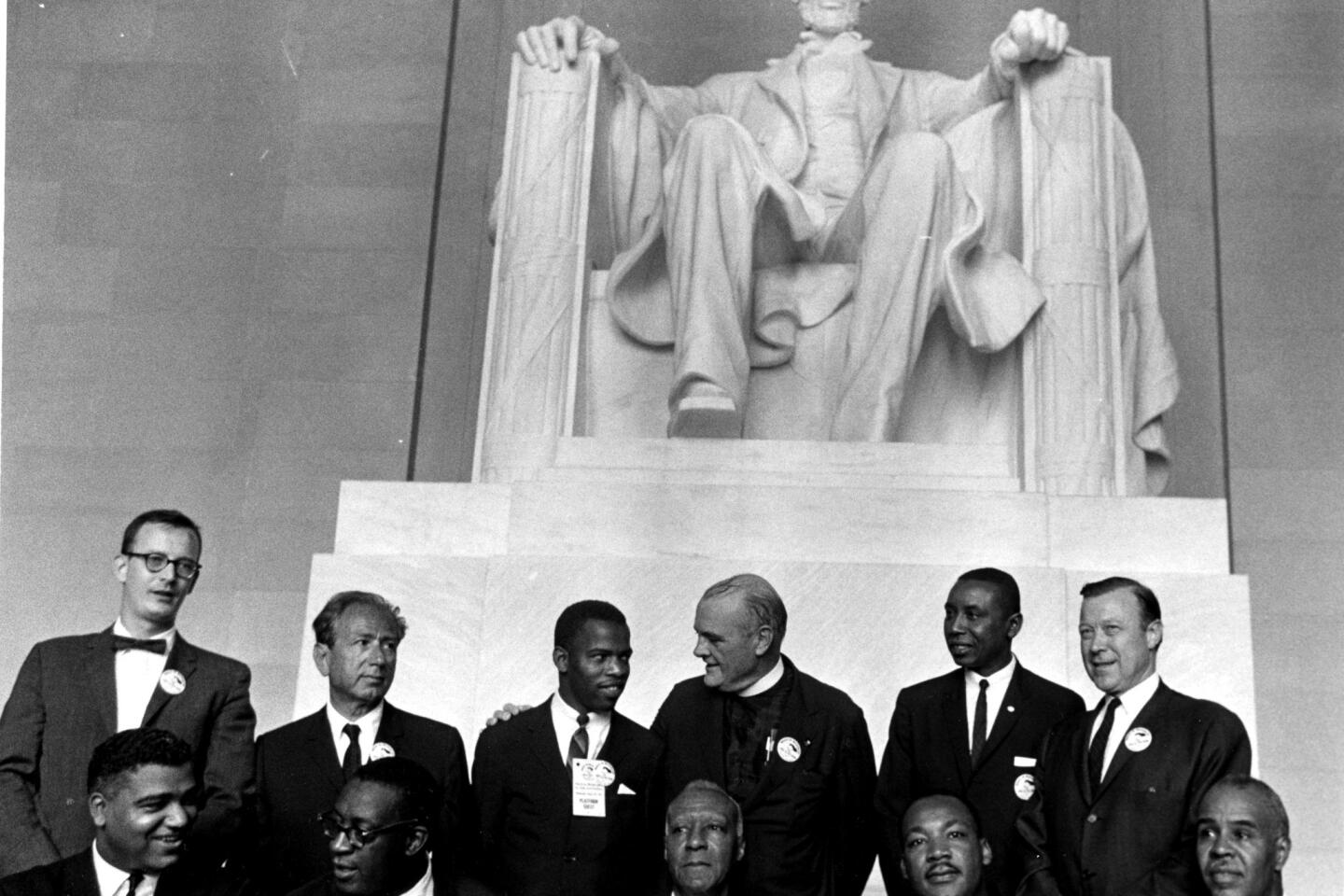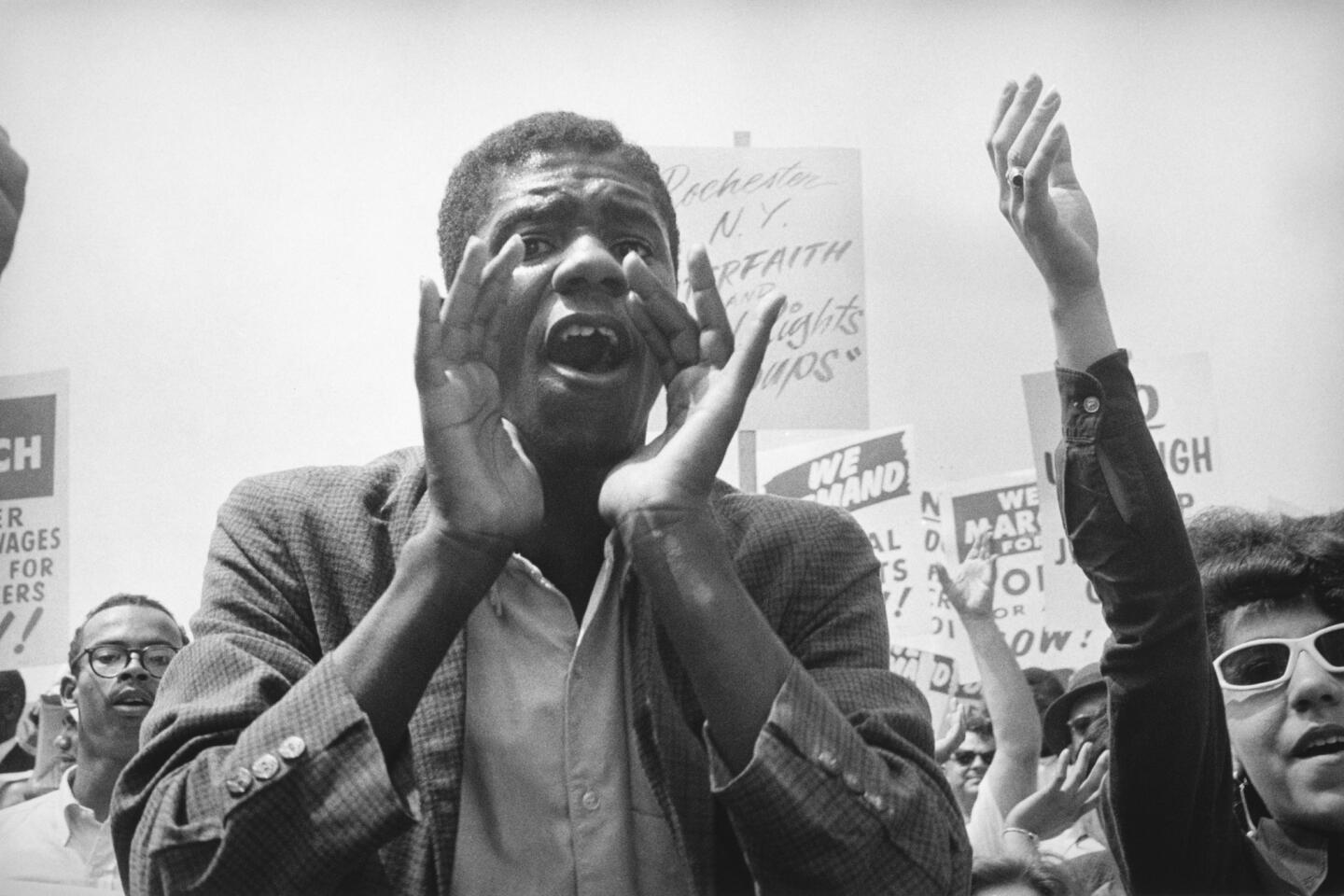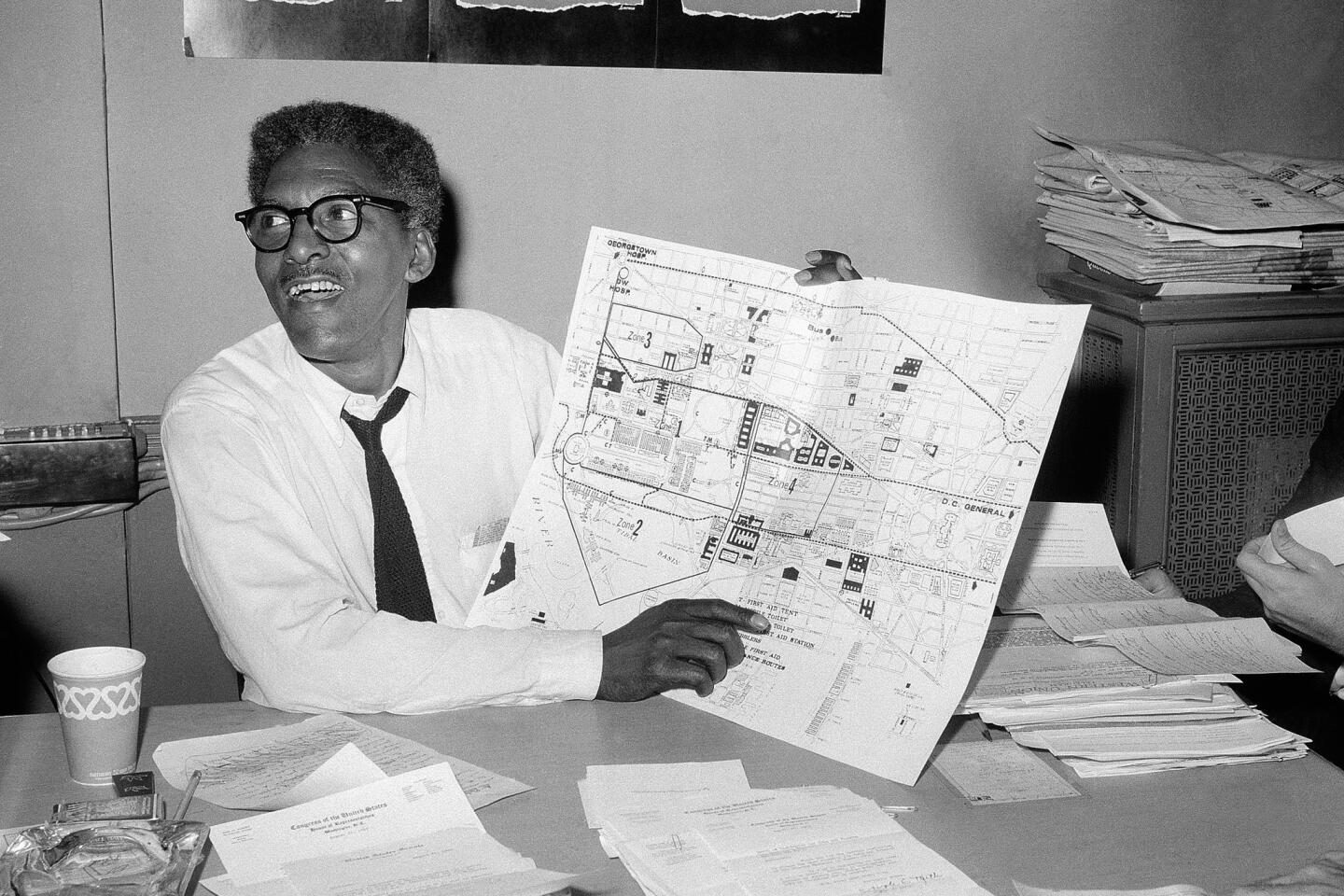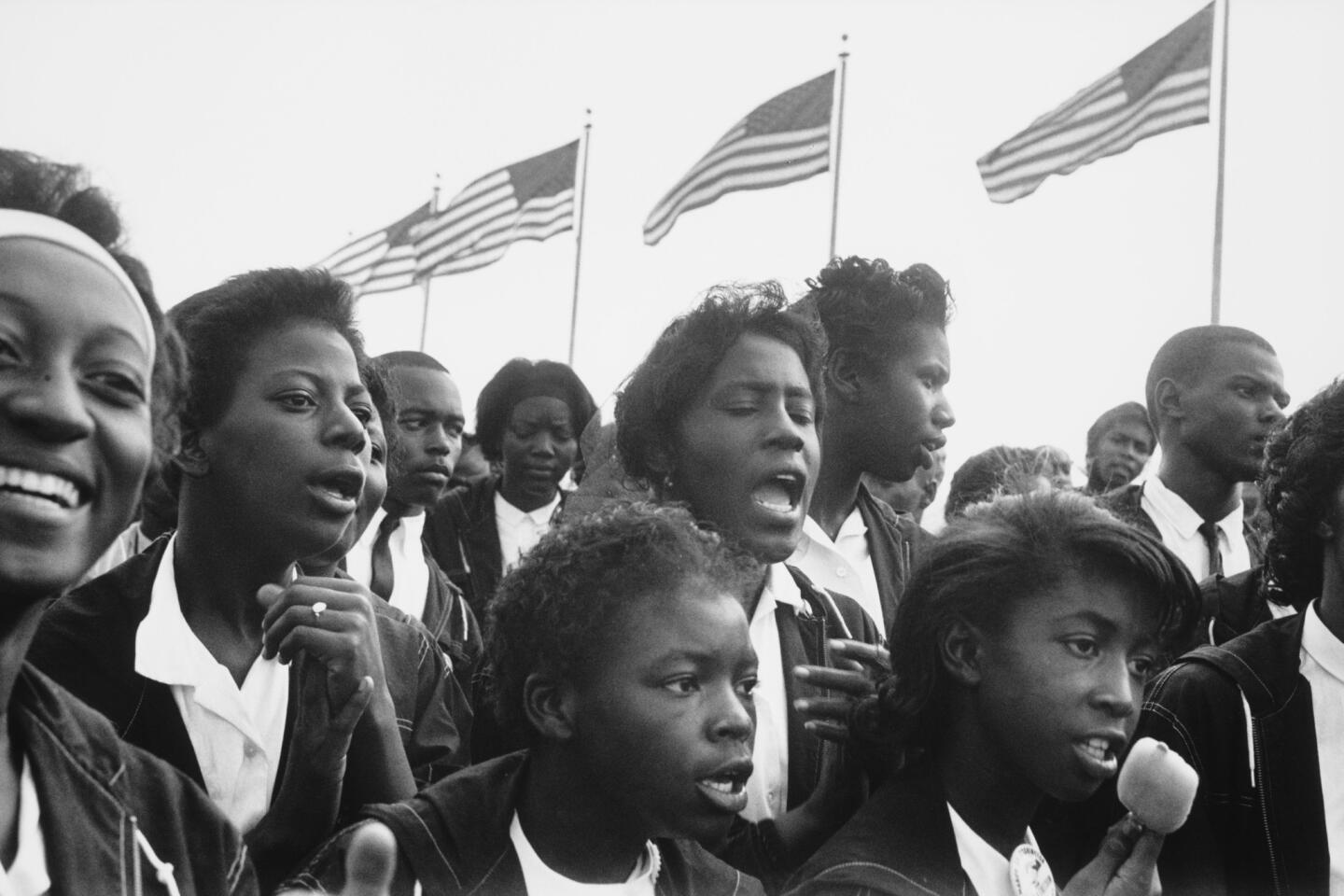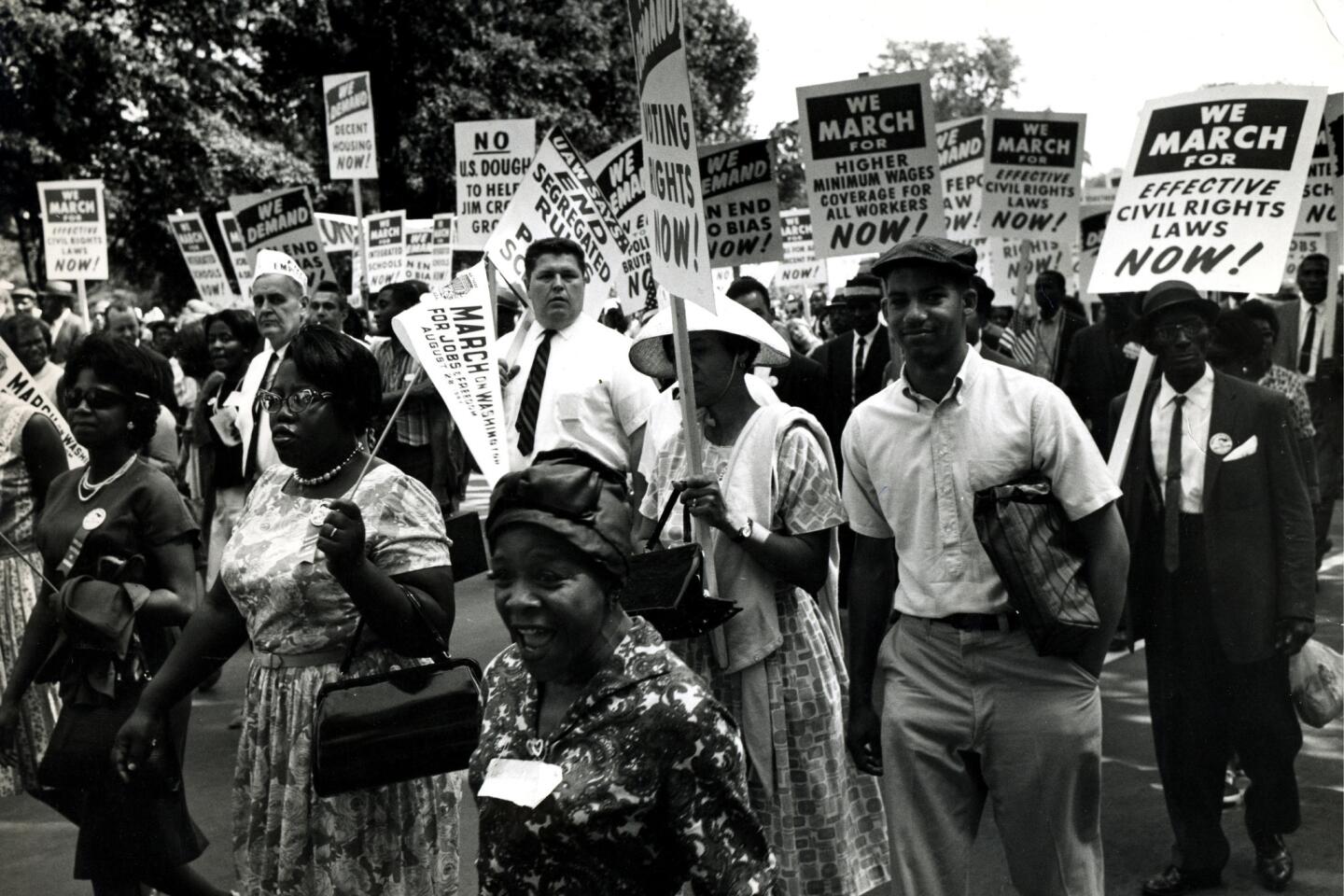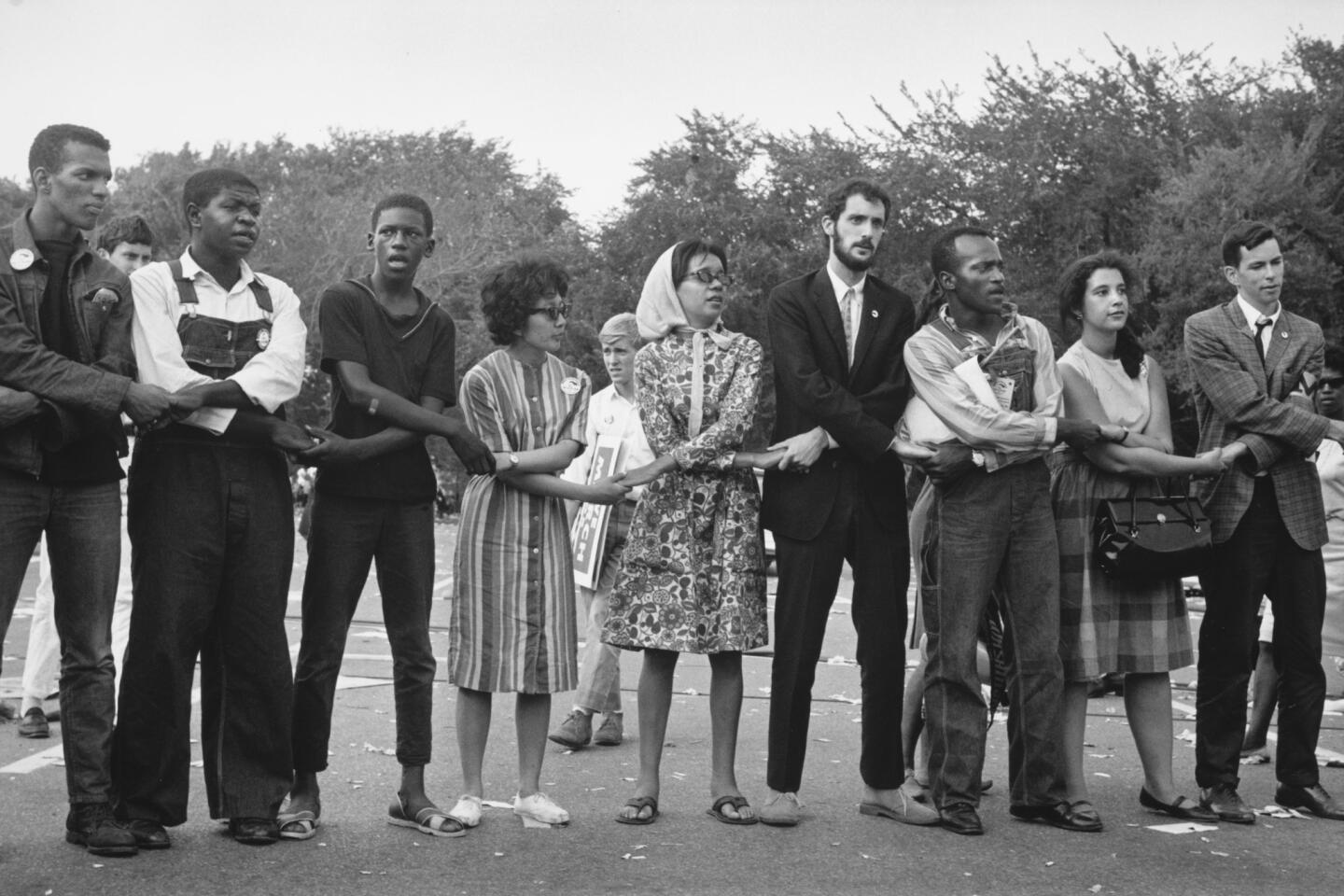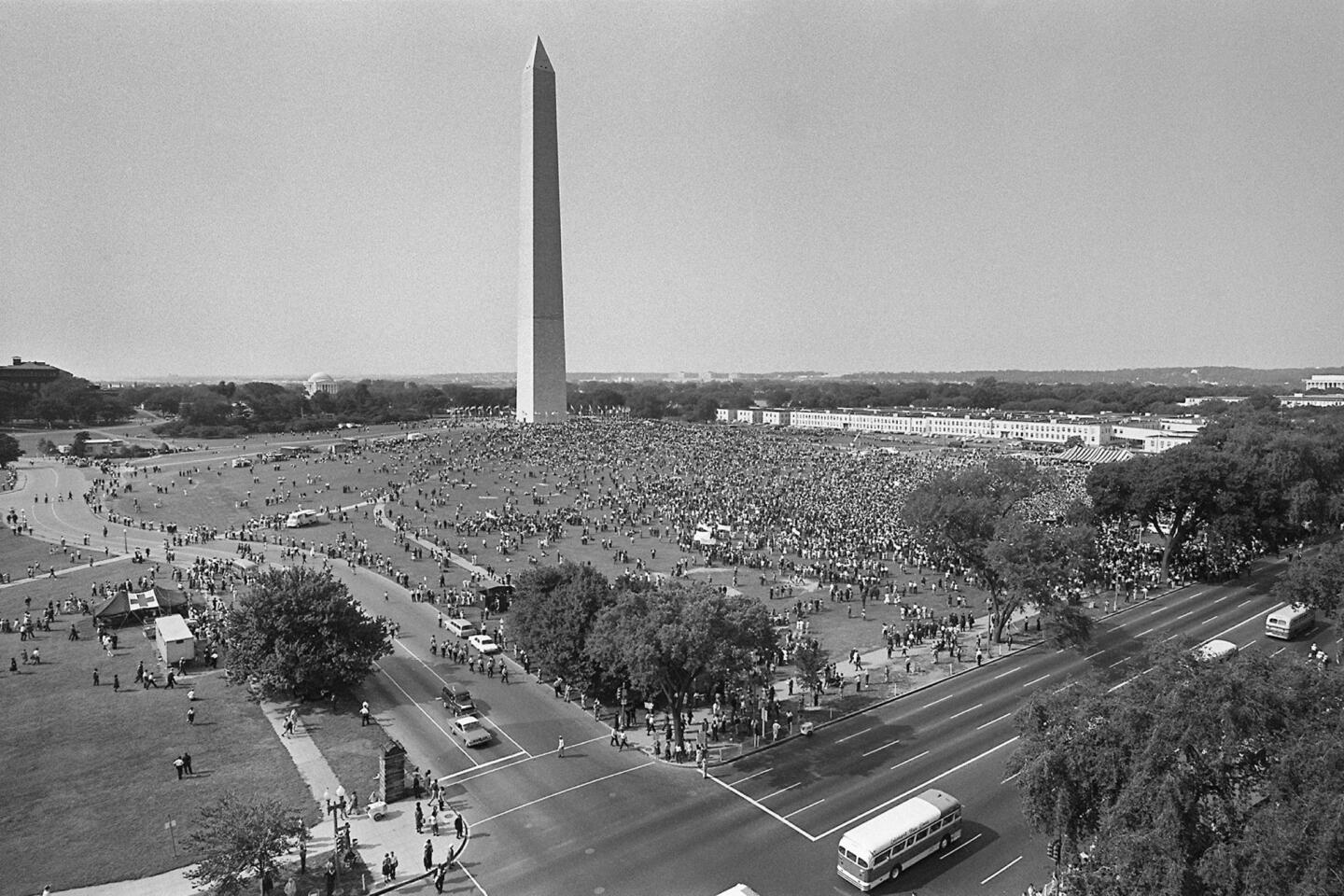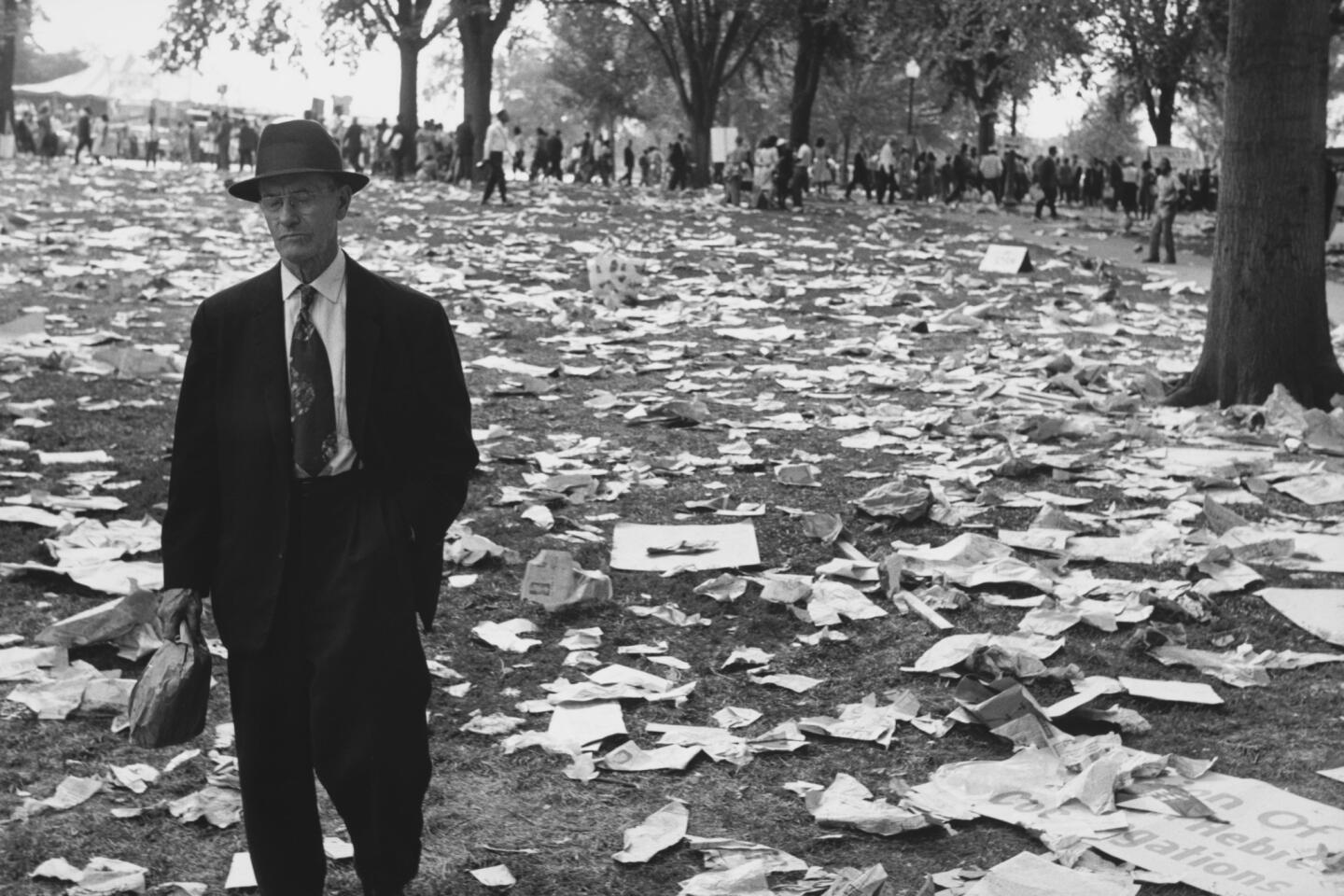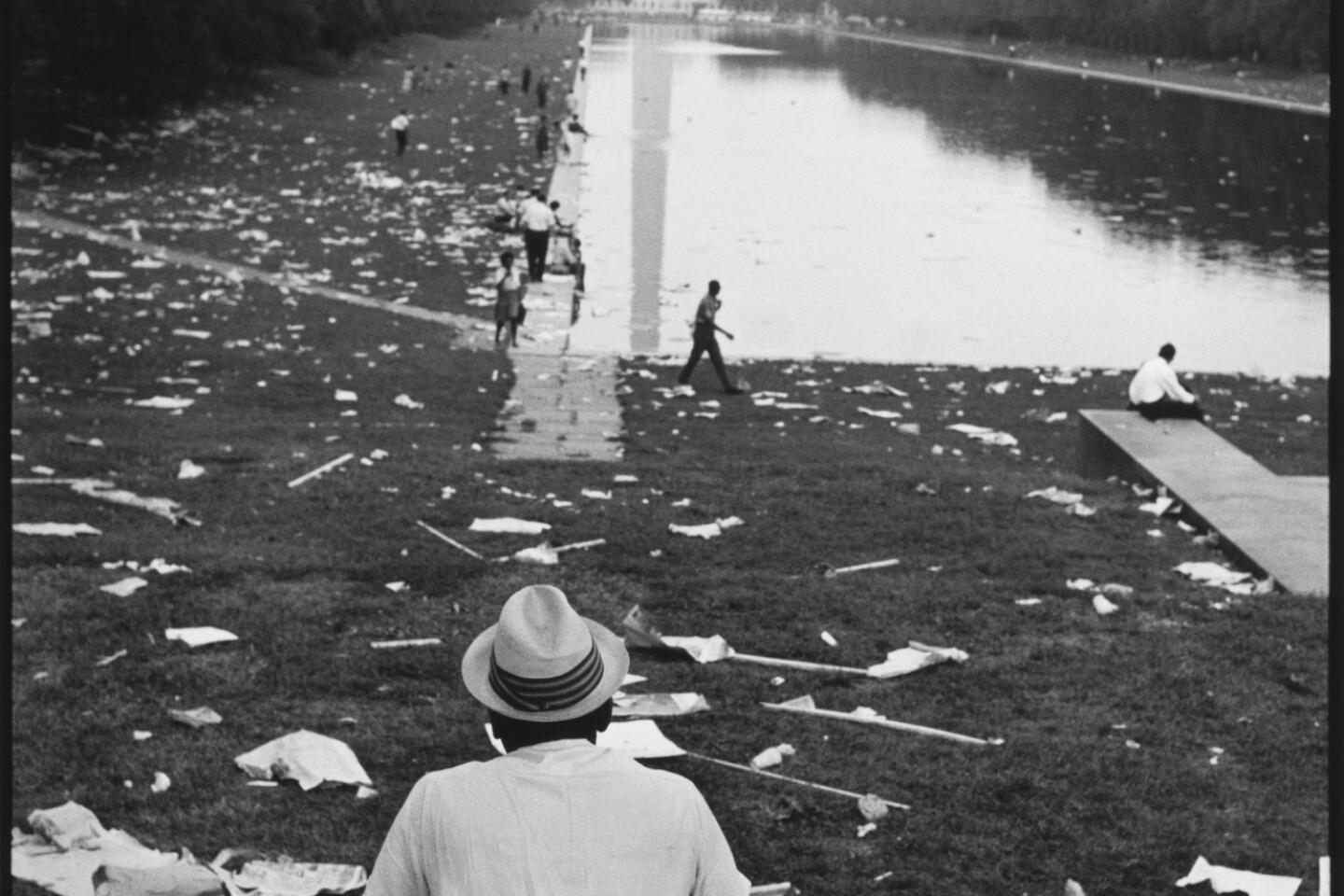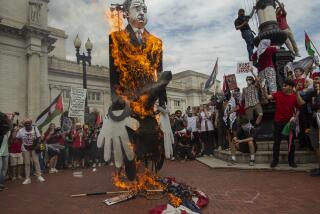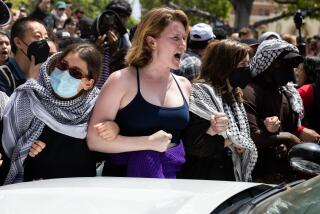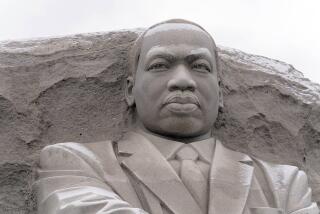March on Washington: In 1963, fears of ‘cold war between races’
WASHINGTON -- Fifty years ago, more than 200,000 demonstrators took to the National Mall to join the March on Washington for Jobs and Freedom, an event that has since been heralded as a landmark moment in the civil rights movement.
But in the days before and after the event, skepticism abounded.
Leading up to the march, a nationwide Gallup poll found that Americans held an unfavorable view of the march, 63% to 22%.
“Anyone has the right to go to Washington, but it’s dangerous. No one can be sure that it won’t get out of hand.” So said an accountant from Erie, Pa., who was quoted in the Los Angeles Times on Aug. 27, 1963, the day before the march.
The sense that black Americans’ efforts were becoming counterproductive was given voice by a column by Morrie Ryskind that ran in The Times. It was ominously titled, “A Danger: Cold War Between Races.”
FULL COVERAGE: The March on Washington
“I have reported, I believe objectively, that the demonstrations, which began with vows of turning the other cheek and nonviolence, have turned into mobism and thus forfeited the sympathy of the average American,” he wrote.
His grim prognostication proved to be widely off the mark. A significant increase in security in Washington -- and a ban on liquor sales -- proved unnecessary. After the march, more concern was paid to the effect of summer humidity on the crowd than any sort of “mobism.”
That humidity took precedent over Martin Luther King Jr.’s legendary speech in the Associated Press’ story on the march, though later, on Sept. 9, 1963, a column by Max Freedman in The Times gave King his due.
Freedman heaped praise upon the late civil rights leader, a “supreme orator, a type so rare as almost to be forgotten in our age,” whose “voice will fill the land, and Americans of all races and creeds will respond.”
Click here for a collection of additional archival stories from The Times’ coverage of the march and its implications, or read through a compelling account of the march’s transformative effect on one participant’s life.
ALSO:
Marchers follow in King’s footsteps
King anniversary puts spotlight on Obama and civil rights
50 years on, civil rights movement has changed with the times
Follow L.A. Times National on Twitter
More to Read
Sign up for Essential California
The most important California stories and recommendations in your inbox every morning.
You may occasionally receive promotional content from the Los Angeles Times.


